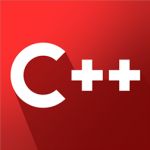Advertisement
Not a member of Pastebin yet?
Sign Up,
it unlocks many cool features!
- // Example of algorithm to open an handle to a specific process based on his name.
- // Returns the HANDLE to the process. (INVALID_HANDLE_VALUE if not found)
- HANDLE OpenHandle(const std::string& ProcessName)
- {
- // First of all we create a snapshot handle specific for processes
- // (notice the usage of TH32CS_SNAPPROCESS) so we are able to call Process32First/Next
- // Remeber to close it when you don't use it anymore!
- HANDLE hSnapshot = CreateToolhelp32Snapshot(TH32CS_SNAPPROCESS, NULL);
- // Check if the snapshot created is valid
- if (hSnapshot == INVALID_HANDLE_VALUE) return INVALID_HANDLE_VALUE;
- // Create the helper struct that will contain all the infos about the current process
- // while we loop through all the running processes
- PROCESSENTRY32 ProcEntry;
- // Remember to set the dwSize member of ProcEntry to sizeof(PROCESSENTRY32)
- ProcEntry.dwSize = sizeof(PROCESSENTRY32);
- // Call Process32First
- if (Process32First(hSnapshot, &ProcEntry))
- {
- // Notice that you have to enable Multi-Byte character set in order
- // to avoid converting everything.
- // strcmp is not the only way to compare 2 strings ofc, work with your imagination
- if (!strcmp(ProcEntry.szExeFile, ProcessName.c_str()))
- {
- // If we are here it means that the process has been found, we can
- // open an handle to it and return it
- // But first of all we have to close the snapshot handle!
- CloseHandle(hSnapshot);
- // Return the handle opened to the process with OpenProcess
- // (Notice the usage of PROCESS_ALL_ACCESS flag in order to grant read/write privileges)
- return OpenProcess(PROCESS_ALL_ACCESS, FALSE, ProcEntry.th32ProcessID);
- }
- }
- else
- {
- // If the Process32First call failed, it means that there is no
- // process running in the first place, we can return directly.
- CloseHandle(hSnapshot);
- return INVALID_HANDLE_VALUE;
- }
- // If we are here it means that the Process32First call returned TRUE, but the first process
- // wasn't the process that we were searching for. Now we can loop through the processes
- // using Process32Next
- while (Process32Next(hSnapshot, &ProcEntry))
- {
- // We do the same check we did for Process32First
- if (!strcmp(ProcEntry.szExeFile, ProcessName.c_str()))
- {
- // If we are here it means that the process has been found, we can
- // open an handle to it and return it
- // But first of all we have to close the snapshot handle!
- CloseHandle(hSnapshot);
- // Return the handle opened to the process with OpenProcess
- // (Notice the usage of PROCESS_ALL_ACCESS flag in order to grant read/write privileges)
- return OpenProcess(PROCESS_ALL_ACCESS, FALSE, ProcEntry.th32ProcessID);
- }
- }
- // Continue loop while the Process32Next call returns TRUE meaning that there are still processes to check
- // If we are here it means that the process has not been found or that there are no processes to scan for anymore.
- // We can close the snapshot handle and return fail value.
- CloseHandle(hSnapshot);
- return INVALID_HANDLE_VALUE;
- }
Advertisement
Add Comment
Please, Sign In to add comment
Advertisement

